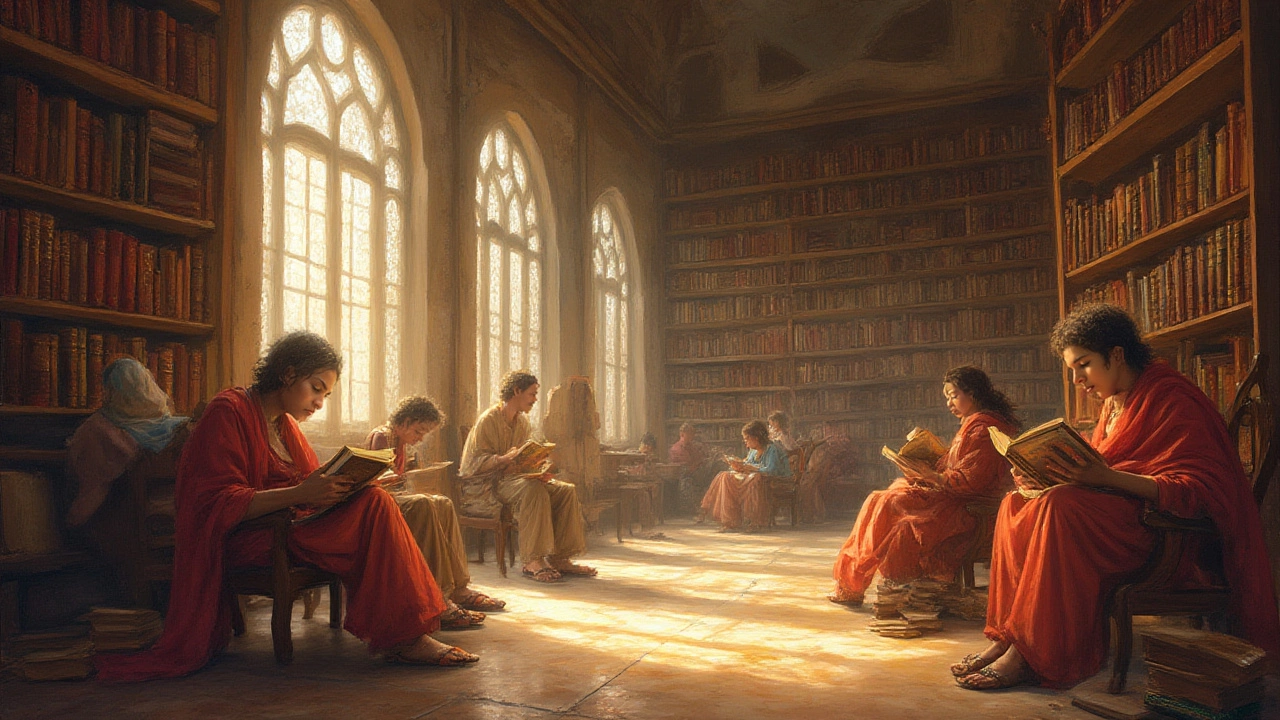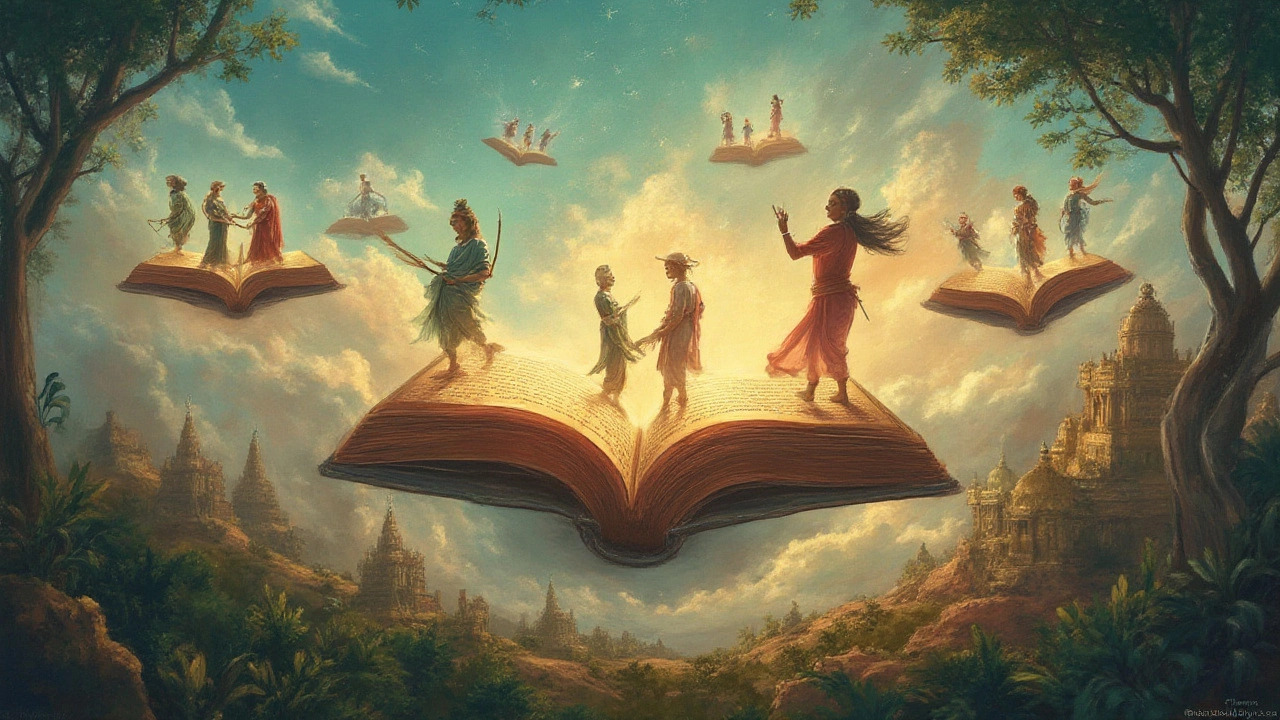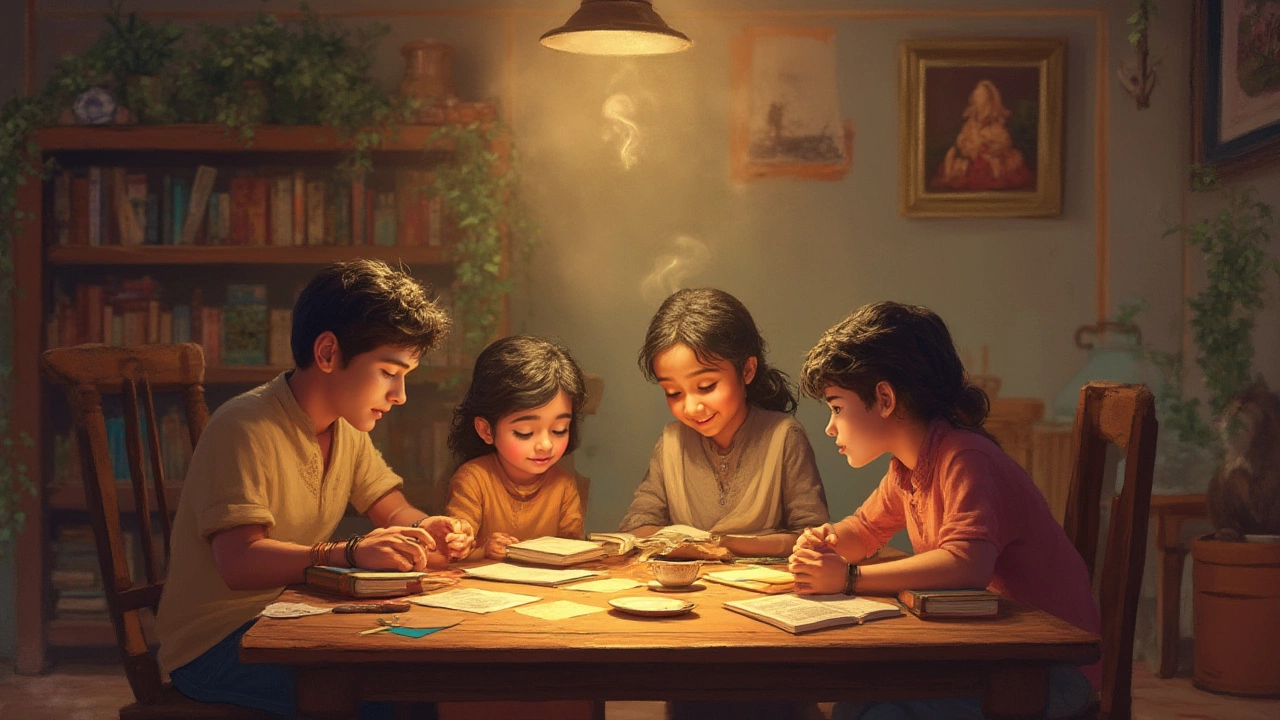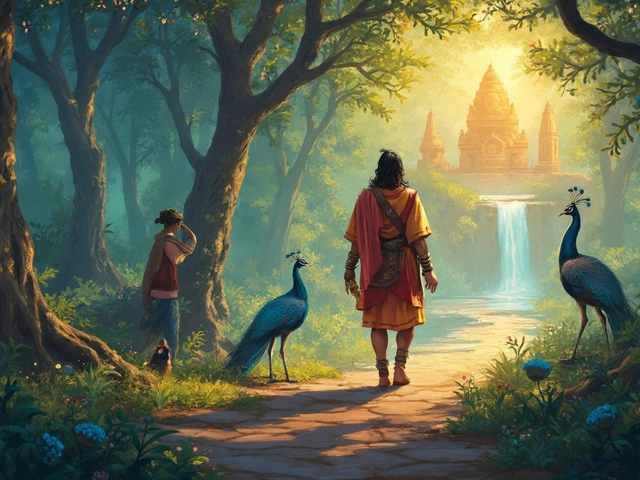
Every book lover has faced this question: ‘What is the greatest novel ever written?’ The internet will throw thousands of lists your way, each with a different spin. But the truth is, a few masterpieces rise above trends, cultures, and generations, grabbing readers by the soul and refusing to let go. These novels aren’t just stories; they shape how we see ourselves and the world. They’ve sparked debates, changed minds, and even launched revolutions. If you’re searching for books that truly stand the test of time, you won’t want to miss these five essential reads.
The Timeless Relevance of "To Kill a Mockingbird"
Harper Lee’s "To Kill a Mockingbird" still packs a punch more than sixty-five years after its release in 1960. Set in Alabama during the Great Depression, the novel follows young Scout Finch as her father, the unflappable lawyer Atticus, stands up for what’s right even when the whole town seems against him. But this book is more than just a court drama or a coming-of-age tale—it’s a lesson on empathy, courage, and the power of doing the right thing, no matter how unpopular that might be. One of the novel’s biggest strengths is its simple yet powerful narrative voice, delivered through a child’s eyes. The innocence, honesty, and confusion in Scout’s questioning of grown-up ways make the story hit home for readers of any age.
Atticus Finch has become the poster dad for morality, but the book never slips into preaching. Instead, it serves up the gut-wrenching reality of racism, injustice, and social separation, all without sugarcoating. That’s why classrooms across the globe still use it—not just in the US. In fact, “To Kill a Mockingbird” has been translated into over 40 languages and has sold more than 40 million copies. The book has even inspired generations of civil rights activists (Oprah Winfrey keeps a signed copy in her personal library!). If you’re picking it up for the first time, don’t expect just a history lesson; expect to reflect on your own views, biases, and sense of fairness. People revisit it every decade and find something new because its themes never really age. A helpful tip? Listen to the audiobook narrated by Sissy Spacek—her voice brings an extra layer of warmth and understanding to the story.
"1984": When Fiction Predicts the Future
Almost every discussion about classic novels brings up George Orwell’s "1984." Originally published in 1949, this nightmare vision of a hyper-controlled future has fueled everything from pop songs to political protests. The book gave us the concept of Big Brother, and in today’s world of facial recognition, data mining, and online surveillance, its warnings feel more urgent than ever. "1984" isn’t just a book about a bleak future, though. Orwell’s world of telescreens, newspeak, and the all-seeing Party is uncomfortably close to ours. It dives straight into questions about privacy, freedom of thought, and the limits of government power. People forget that when Orwell wrote "1984", most folks still trusted the newspaper and barely imagined what a surveillance state could look like. Nearly a century later, his predictions hit uncomfortably close to home.
The reason people still grab copies (it usually spikes every time a government surveillance scandal hits the news) is simple: Orwell didn’t just care about politics, but about how fear twists the human mind. Winston Smith, the story’s fragile rebel, is a reminder that resistance can be lonely, exhausting, and even hopeless—but it’s also what makes us human. "1984" is often taught in schools, but flipping back through it as an adult feels different. The vocabulary feels sharp, the dread seeps in, and the ending? It sticks with you. If you’re reading "1984", try comparing Winston’s world to your own—how much of our daily life could Orwell have predicted? For fans of hidden gems, the appendix on Newspeak at the end is a weird but fascinating dive into how even language isn’t safe from authority.

The Epic Depth of "War and Peace"
No list of top novels can skip "War and Peace" by Leo Tolstoy. This Russian giant is world-famous for both its intimidating length and its wind-swept emotional power. Running at over 1,200 pages (or nearly 1,400 depending on the translation), most people put it in the “someday” pile. But those who do take the plunge discover more than military battles and ballroom scenes—the novel pulls readers into the lives, dreams, and heartbreaks of over a dozen unforgettable characters. At first, it might look like an epic about the Napoleonic Wars. But at its heart, "War and Peace" is about family, love, fate, history, and the messy, beautiful chaos of living a real life.
What gives "War and Peace" such enduring appeal? Unlike most doorstoppers, it’s more interested in characters than in sweeping plot twists. The struggles of nobleman Pierre Bezukhov, the dazzling Natasha Rostov, and the idealistic Prince Andrei are epic in scope but deeply human in delivery. Tolstoy had a knack for capturing those tiny moments—awkward dinners, stolen glances, sudden bursts of joy—that make any life feel universal. Believe it or not, Tolstoy didn’t even see "War and Peace" as a novel; he called it “not a novel, even less is it a poem, and still less a historical chronicle.” The book has been translated into over 40 languages, and some fans go so far as to track down different versions just to see which translation clicks best. (A quick hint: the Anthony Briggs and the Pevear & Volokhonsky translations are both praised for making the prose pop.) Joining a reading group or watching a miniseries along with the book can make the journey friendlier. Don’t let the size scare you—the payoff is more than worth it.
Reimagining the American Dream: "The Great Gatsby"
If you’ve ever heard someone say America was “built on dreams,” you’re hearing a bit of "The Great Gatsby." F. Scott Fitzgerald’s razor-sharp novel, set in the roaring twenties, is a swirling club of glitz and greed. Gatsby himself is a self-made millionaire throwing fabulous parties—but under the sparkle, he’s haunted by a single hope: winning back the woman he’s obsessed with. Sure, it’s wrapped up in jazz, champagne, and fast cars, but "The Great Gatsby" is really about emptiness and longing—how chasing the wrong dream can hollow a person out. People have argued for decades whether Gatsby is a tragic hero or a hopeless fool. But everyone agrees the book nailed an era’s mood and secret pain.
What’s wild is that the book flopped when it came out in 1925. Fitzgerald died convinced he was a failure. Then, during World War II, American soldiers started getting free copies—and suddenly, Gatsby-mania exploded. In 2025, it’s nearly impossible to visit a high school or university library without finding a stack of copies, still worn and dog-eared. Teachers love it because, in one hundred and eighty short pages, it says more about money, love, and heartbreak than novels ten times its size. Some cool facts: the book’s famous cover art (the sad eyes floating over blue lights) is considered one of literature’s most iconic images, and the green light at the end of Daisy’s dock has inspired endless theories. If you want to catch all the layers, reread it a few times—each pass uncovers something new. And the sentences? Fitzgerald carves them sharp. Reading it aloud with a friend can make those phrases really sing.

The Imaginative Adventure of "Moby-Dick"
Heads up: "Moby-Dick" isn’t just a story about a whale. Herman Melville’s 1851 masterpiece is wild, weird, and stuffed with big ideas. Captain Ahab’s obsession with the great white whale is legendary, but every chapter goes off in new directions—philosophy, science, humor, heartbreak. Some readers love hopping aboard with Ishmael, the world-weary narrator, while others find the encyclopedic chapters on whaling a bit too much. But here’s the thing: few books cram in so much energy, ambition, and strangeness. Melville asked readers to wrestle with fate, madness, revenge, and the question of what makes life meaningful—or meaningless. High schoolers might groan about the book’s length or tangled language. But out in the real world, "Moby-Dick" draws fans who know that adventure rarely stays on the map.
Fun fact—"Moby-Dick" was a total flop at first. Melville died nearly forgotten. But around the 1920s, critics dug it up, and today, you’ll spot references to Ahab and his white whale everywhere from movies to sports. The phrase “Call Me Ishmael” is so famous it’s spoofed everywhere from baseball cards to late-night TV. If you want to tackle it yourself, try a modern edition with notes or follow along with a community read—social media groups run annual “Moby-Dick marathons.” Don’t sweat if you wander off for a few chapters; that’s how Melville wrote it, after all. Dive in, and you’ll get a taste of the ocean-sized ambition at the heart of American literature. For anyone interested in deep questions and offbeat humor, this one is impossible to forget.
So there you go—the top 5 novels that have shaped how readers see the world, sparked heated dinner debates, and earned a permanent place in the modern bookshelf. Pick one up, and there’s a good chance you’ll see what all the fuss is about. Each of these books carved their mark not just on literature, but on life itself. People still argue over which is best, but nobody forgets how they felt turning the last page. Ready to see why? Crack one open and join the conversation—these classics are here to stay. The greatest stories just keep getting better with time.


